January 21, 2025
May 2, 2020 at 10:00 pm · Filed under Torah Portion
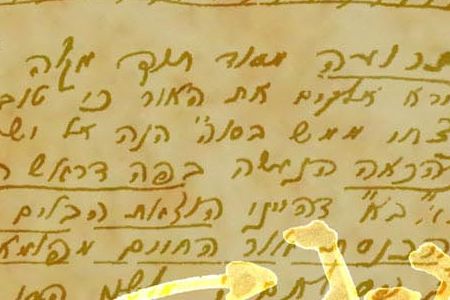
Leviticus, 21:1-24:23
This Week’s Torah Portion | May 3 – May 09, 2020 – 9 Iyar – 15 Iyar, 5780
In A Nutshell
The portion, Emor (Say), begins with rules concerning priests, forbidding them to marry a divorced woman, a widow, or a whore, and permitting them to marry only a virgin. They are also forbidden to approach the dead. Only kin are permitted to be defiled and approach the dead. The High Priest is forbidden to be defiled even by his own kin have died. They are forbidden to shave their heads and beards, and they are forbidden to cast any flaws in their bodies. A Cohen (priest) with a blemish in his body will not be considered a priest, and will not be able to serve in the Temple. The portion also introduces laws of purity and impurity for priests, such as the prohibition on eating offerings, and the rules for a barren or divorced daughter of a priest.
The portion also mentions many rules concerning the Sabbath, Passover, the seventh of Passover, Shavuot, the Omer Count, and Yom Kippur (Day of Atonement). The end of the portion speaks of a quarrel between two men, one of whom said the name of the Creator and cursed. He was punished by ejection from the camp and execution by stoning.

Commentary by Dr. Michael Laitman
What is so special about this portion that elaborates so much about priests and festivals?
The correction is only a correction of the heart, which contains all 613 desires we need to correct from using our ego in order to receive into using it in order to bestow, in favor of others and love of others. The whole Torah deals with the correction of the heart. The first stage in the correction of the heart is when we get rid of the ego. The second stage is when we use all of our heart in favor of others.
The portion describes all the levels of correction. It is written, “And you will be to Me a kingdom of priests and a holy nation” (Exodus, 19:6). This means that everyone must reach the highest degree (a Cohen [priest])——following the preparation described in the portions, Aharei Mot (After the Death) and Kedoshim (Holy). The Torah constantly promotes us until we enter the land of Israel and achieve Dvekut (adhesion) with the Creator.
The portion starts with elaborating on the terms of the degree of priests. A person must correct the desires, as it specifies—prohibition on marrying a divorcee, a widow, or a whore. A priest must also avoid shaving his face and his head. He must also maintain these prohibitions until he is corrected and sees his desires in the image of man. It is as we learn regarding the perception of reality: the whole world is a reflection of our desires, an outward projection of our internality.
A priest must have natural desires that have been corrected into aiming to bestow. He must not impair his body, make any kind of paintings on it, or touch his hair. The hair is a special correction. The word Se’arot (hair) comes from the word Se’arah (storm). They are to be corrected and therefore must not be removed.
Read the rest of this entry »
April 25, 2020 at 10:00 pm · Filed under Torah Portion
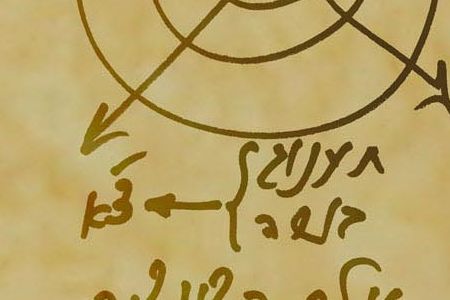
Leviticus, 16:1-18:30—19:1-20:27
This Week’s Torah Portion | Apr 26 – May 02, 2020 – 2 Iyar – 8 Iyar, 5780
In A Nutshell
The portions, Aharei Mot (After the Death) and Kedoshim (Holy), are connected. In the portion, Aharei Mot, following the death of Aaron’s two sons—Nadav and Avihu—the Creator details before Moses various rules concerning the way Aaron may approach the Holy in the tabernacle: it requires offering several sacrifices. Aaron must choose between two male goats, one to be sacrificed as a sin offering, and the other to be sent to the desert as a “goat to Azazel.”
The portion also details the prohibition to slaughter for food without bringing an offering to the tent of meeting. The Creator instructs Moses to command the people not to follow the ways of the Egyptians and the Canaanites, and not to obey their rules. At the end of the portion the Creator tells the people of Israel not to be defiled by all the impurities that the nations that dwelled in the land of Canaan before them did because if they did, the land would repel them.
In the portion, Kedoshim (holy), the Creator says to the children of Israel through Moses: “You shall be holy for I the Lord your God am holy” (Leviticus, 19:2).
The portion details many different commandments between man and God, between man and man, and some that concern offering sacrifices. The portion also deals with fearing Mother and Father, observing the Sabbath, and the prohibition on idol worship. Some of the Mitzvot (commandments) relate to the land of Israel, the land of Canaan, the tithing, fruits of the tree, idol worship, and other laws.
The portion ends with a complete prohibition on incest and adultery, which are punishable by death. The Creator commands the children of Israel to keep the laws when they arrive at the land of Israel, and refrain from what they did while in Egypt. They must separate between pure and impure beasts, and, likewise, the Creator will separate between Israel and the rest of the nations. This is how they will be Holy to Him.

Commentary by Dr. Michael Laitman
Most people believe that the Torah speaks of this world, that it is full of physical actions and descriptions of animals, people, and objects, rules of social conduct, what is permitted, and what is forbidden. We either forget, or have never known that this world is but a replication of the spiritual world.
Read the rest of this entry »
April 18, 2020 at 10:00 pm · Filed under Torah Portion
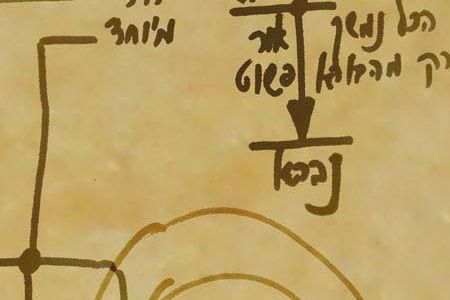
Leviticus, 12:1-13:59 – 14:1-15:33
This Week’s Torah Portion | Apr 19 – Apr 25, 2020 – 25 Nissan – 1 Iyar
, 5780
In A Nutshell
In the portion, Tazria (When a Woman Delivers), we learn about laws related to a woman who has delivered. If she delivers a boy, she is considered impure for seven days. On the eighth day the boy is circumcised and the woman begins a 33 day purification period. If the woman delivers a girl she is considered impure for fourteen days, and the purification period lasts 66 days.
The portion also details rules concerning afflictions. A person who is infected with something must come to the priest, who diagnoses the sore and knows the rules concerning each of them.
The portion, Metzorah (The Leper), is dedicated to the rules concerning leprosy, and what to do when one has been infected with it. A leper who has healed must be examined by the priest, then bring two birds. The priest slaughters one bird and dips the other in clean water.
The end of the portion discusses the impurity of nocturnal ejaculation and the rules concerning a woman in menstruation—anyone who touches her is impure until the evening.

Commentary by Dr. Michael Laitman
Why are the rules in the portions described in such detail?
The whole Torah is an instruction by which to correct our nature. Man was deliberately created with an egoistic desire; this is why we want everything for our own good, as it is written, “For the inclination of a man’s heart is evil from his youth” (Genesis, 8:21). Creation itself is the evil inclination, the sum of our negative qualities. The inanimate nature, the vegetative, and the animate around us are completely neutral—neither good nor bad. It is managed by the laws of nature that act instinctively on all its elements.
Read the rest of this entry »
April 11, 2020 at 10:00 pm · Filed under Torah Portion
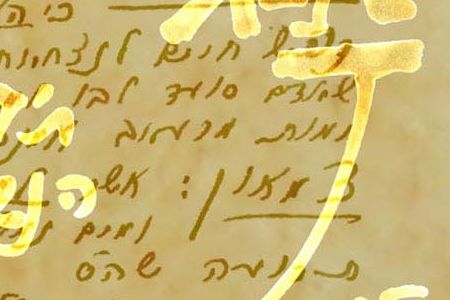
Leviticus, 9:1-11:47
This Week’s Torah Portion | Apr 12 – Apr 18, 2020 – 18 Nissan – 24 Nissan, 5780
In A Nutshell
The portion, Shmini (On the Eighth Day), deals with the events of the eighth day after the seven days of filling.[1] This is the inauguration day of the tabernacle. Aaron and his sons offer special sacrifices on this day. Moses and Aaron go to bless the people, and finally, the Creator appears to the people of Israel.
Aaron’s sons, Nadav and Avihu sin with offering on a foreign fire, and the fire consumes them. Aaron and the remaining sons receive special instructions how to conduct themselves in the situation, and among others orders, they are forbidden to mourn.
The portion tells of another misunderstanding between Moses and Aaron and his sons concerning eating the sin offering. The portion ends with the rules concerning forbidden food, detailing the animals, beasts, poultry, and fish that are forbidden to eat. Rules of Tuma’a (impurity) and Taharah (purity) are also briefly explained.

Commentary by Dr. Michael Laitman
The portion mentions many details concerning the tabernacle and offering sacrifices, what is forbidden and what is permitted. How should we understand it internally?
We need to examine which of our 613 desires we need to correct, and how. It was said about man, “I have created the evil inclination; I have created for it the Torah as a spice,”[2] so we may correct our evil inclination—the egoistic desires—in which we think only of ourselves and cannot perform a single act of giving and love of others.
Read the rest of this entry »
March 28, 2020 at 10:00 pm · Filed under Torah Portion
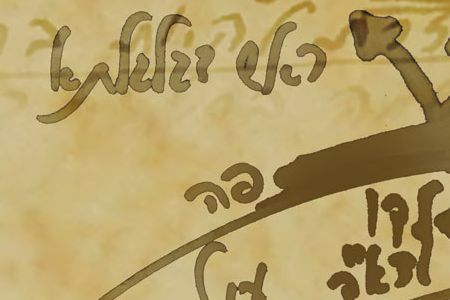
Leviticus, 6:1-8:36
This Week’s Torah Portion | Mar 29 – Apr 04, 2020 – 4 Nissan – 10 Nissan, 5780
In A Nutshell
The portion, Tzav (Command), deals with rules of sacrificing, especially those related to priests. The portion mentions the commandment to donate the fertilizer, the gift offering, sin offering, guilt offering, peace offering, and the prohibition to eat animal fat.
Tzav also mentions punishments for those who eat non-kosher meat, as it is written, “The soul that eats from it shall bear iniquity (Leviticus, 7:18). One who eats fat from the offerings, “The soul that eats shall be cut off from its people” (Leviticus, 7:25), and one who eats the offerings’ blood, “That soul shall be cut off from its people” (Leviticus, 7:20).
Subsequently, the portion deals with the seven days of filling, and the inauguration of the tabernacle. The Creator commands Moses to assemble Aaron and his sons the priests, and the whole congregation at the door of the tent of meeting. Moses washes Aaron and his sons and dresses them with the clothes of priesthood. Moses puts the anointing oil over the tabernacle and all that is in it, and sanctifies Aaron and his sons, showing the priests—following the Creator’s command—what to do with the various organs of the offerings.

Commentary by Dr. Michael Laitman
The Korban (offering/sacrifice, from the word, Karov [near]) is the way to draw near the Creator. There is nothing but the offerings. Today we are in the worst state. There is nothing worse than this world and our current state. We must come out of that state and advance toward the Boreh (Creator), from the words Bo Re’eh (come and see). We will discover the Creator according to the changes and corrections in us because the upper force, namely the upper light, is in complete rest, and all the changes occur in us, as it is written, “I the Lord do not change” (Malachi, 3:6).
Nearing the Creator depends on our qualities. Therefore, we must all change ourselves and correct all the negative and egoistic desires in us, according to the order the Torah narrates. The word Torah comes from the word Horaa (instruction) how to correct our egoistic desires, turn them into aiming toward bestowal and love, and shift from unfounded hatred to absolute love.
The bad global crisis is happening due to unfounded hatred among everyone. There is abundance in the world, but we cannot share it among us. We cannot establish social justice, connection, unity, and arrange ourselves and our lives better because of our characters, as it is written, “The inclination of a man’s heart is evil from his youth” (Genesis, 8:21). To correct the heart, which symbolizes our 613 egoistic, corrupted desires, we need the Torah.
The Torah is the “light that reforms.”[1] One who treats the Torah properly discovers one’s wickedness, as it is written, “The world was created only for the complete wicked or the complete righteous.”[2] That is, we must discover that we are completely wicked, created with an evil inclination. Then, “I have created for it the Torah as a spice”[3] because “the light in it reforms them.”[4] Then we come to a state of complete righteous. This is how we must see it.
Read the rest of this entry »
« Previous entries ·
Next entries »








